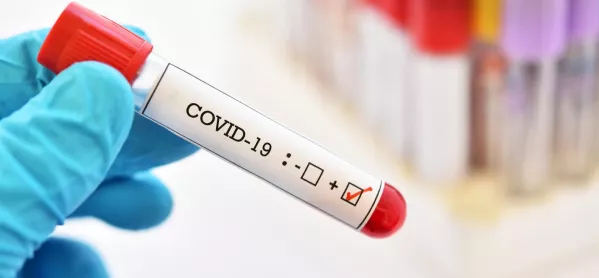Students over the age of 16 should use the NHS Covid-19 app to help to slow the spread of coronavirus in colleges, the Department for Education has announced.
In new guidance released to further education institutions today, the DfE said that “leaders and staff should familiarise themselves with the features of the app” and “ensure all students in the setting are aware of the approach the setting is taking to the app”.
Coronavirus: What to do if a student tests positive
Opinion: How do you deal with 15 Covid cases in 4 days?
Student voice: What is it like for students to be back in class?
The NHS Covid-19 app is suitable for anyone over the age of 16 and has the following six features:
- Trace - alerts the individual if they were in close contact with a confirmed case
- Alert - provides the individual with the risk level associated with coronavirus (Covid-19) in their local area, based on the postcode district they enter
- Check in - allows the individual to check in to locations via the app and official NHS QR codes
- Symptoms - allows the individual to check symptoms against government guidance and to get advice
- Test - allows the individual to order a free test and to receive results and advice via the app
- Isolate - provides an isolation “companion”, which counts down how many days they have left to isolate and provides links to useful advice
The guidance says that Bluetooth needs to be enabled on the phone for the app to work. If an individual with the app tests positive for Covid-19, the app will ask them to allow those that they have been in contact with to be alerted. If so, the app will then alert relevant individuals if they have been in close contact with a positive case.
“Close contact” is based on an algorithm, but generally means you’ve been within two metres of someone for 15 minutes or more. Individuals are not informed who the positive case is.
The DfE said that the app should complement, rather than replace, existing processes at FE colleges.
The guidance said: “There are likely to be benefits to settings, if a number of students and staff have the app and make use of it during the day. This is because the information it provides may help to limit the number of other students and staff who are required to self-isolate when there is a positive case.
“Whilst we do not require settings to change their mobile phone policies, settings may want to do so if they currently do not allow mobile phones on site, require mobile phones to be switched off during the day or require phones to be left in lockers or similar. Settings choosing to allow mobile phones to be switched on and with students during the day can still require phones to be on silent and in pockets or bags that are with the student at all times, as the app will work in the background.”




